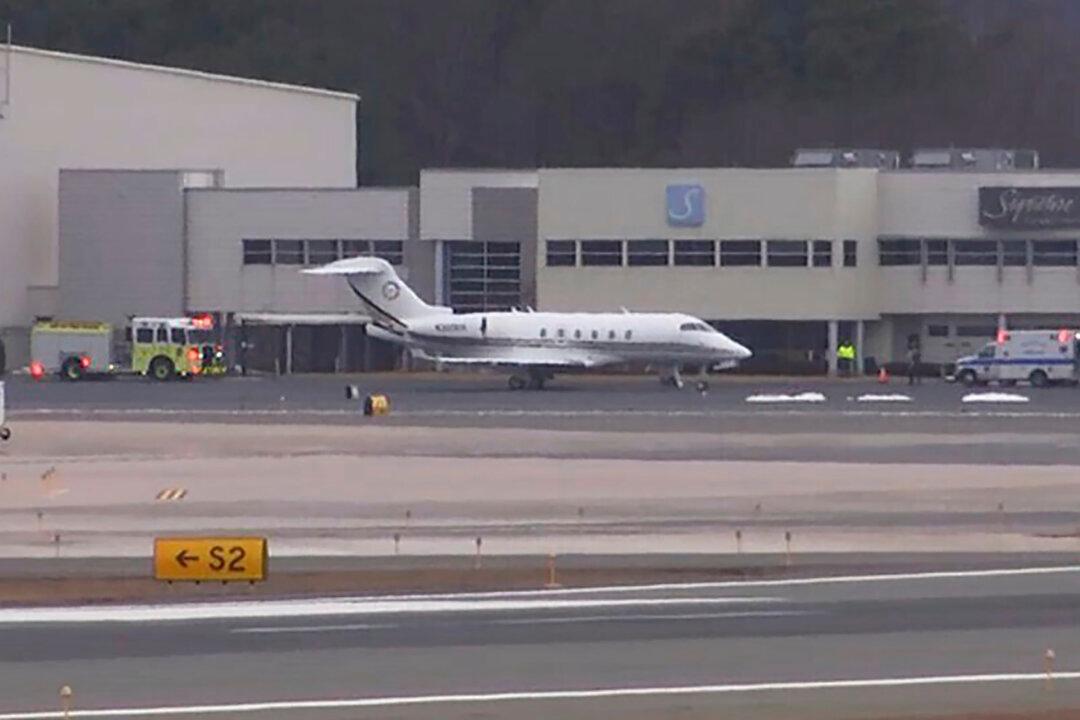HARTFORD, Conn.—A business jet may have experienced problems with its stability before severe roughness caused the death of a passenger, the National Transportation Safety Board said Monday.
The NTSB said it’s looking at a “reported trim issue,” a reference to adjustments that are made to an airplane’s control surfaces to ensure it is stable and level in flight. The agency initially reported that the plane experienced severe turbulence late Friday afternoon.





